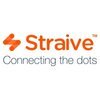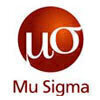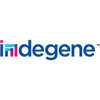
i
Filter interviews by
Global Healthcare Billing Partners Interview Questions and Answers
7 Interview questions
India boasts stunning places like the serene backwaters of Kerala, the majestic Taj Mahal, and the vibrant landscapes of Rajasthan.
Kerala's backwaters: A network of lagoons and lakes, perfect for houseboat rides.
Taj Mahal in Agra: A UNESCO World Heritage site, known for its stunning white marble architecture.
Rajasthan's forts: Explore the grandeur of forts like Amer Fort and Mehrangarh Fort.
Varanasi: One of the ol...
The largest building in the world by volume is the Boeing Factory in Everett, Washington, covering 98.3 acres.
Boeing Factory has a volume of 13.3 million cubic meters.
It is primarily used for assembling Boeing airplanes.
The factory is so large that it has its own weather system.
It features a unique design with a clear span of 1,600 feet.
I tend to be overly critical of my own work, which can sometimes lead to perfectionism.
I have a tendency to overanalyze my work and strive for perfection
I am working on finding a balance between striving for excellence and being overly critical
For example, I may spend too much time on a task trying to make it perfect when it is already satisfactory
My strength lies in my ability to effectively communicate with clients and resolve issues in a timely manner.
Strong communication skills
Problem-solving abilities
Time management skills
Managed Service Provider
MSP stands for Managed Service Provider
MSPs are companies that provide IT services to other businesses on a subscription basis
Examples of MSPs include IBM, Accenture, and Dell
I am open to night shifts as I understand their importance in maintaining operational efficiency and patient care.
I have experience working night shifts in previous roles, which helped me adapt to different schedules.
I understand that night shifts can be crucial for continuous operations, especially in healthcare settings.
I am committed to maintaining a healthy work-life balance, which allows me to perform effecti...
To work on a claim, one needs to gather all necessary information, verify it, and submit it to the appropriate party.
Gather all relevant information related to the claim
Verify the accuracy of the information
Submit the claim to the appropriate party
Follow up on the claim status regularly
Global Healthcare Billing Partners Interview Experiences
36 interviews found
I applied via Referral and was interviewed in Sep 2024. There were 2 interview rounds.
(1 Question)
- Q1. To type a paragraph in system
(3 Questions)
- Q1. Self introduction
- Q2. What is medical coding
- Q3. Some Terminology in medical coding
I appeared for an interview in Mar 2025, where I was asked the following questions.
- Q1. Introduce About yourself
- Q2. Speak any topic for 5 minutes
(2 Questions)
- Q1. Night shift are u ok with that
- Ans.
I am open to night shifts as I understand their importance in maintaining operational efficiency and patient care.
I have experience working night shifts in previous roles, which helped me adapt to different schedules.
I understand that night shifts can be crucial for continuous operations, especially in healthcare settings.
I am committed to maintaining a healthy work-life balance, which allows me to perform effectively ...
- Q2. Salary has credited every month 8th
(2 Questions)
- Q1. Introduction about your self
- Q2. Tell about why you choose this carrer
- Ans.
I chose this career to make a meaningful impact, drive innovation, and lead teams towards achieving shared goals.
Passion for leadership: I enjoy guiding teams and fostering collaboration, as seen in my previous role where I led a project that increased efficiency by 30%.
Desire to create change: I am motivated by the opportunity to implement strategies that drive growth, like when I spearheaded a market expansion initia...
Interview Preparation Tips
I appeared for an interview in Nov 2024, where I was asked the following questions.
- Q1. Who is the father of our nation
- Ans.
Mahatma Gandhi is widely regarded as the Father of the Nation in India for his role in leading the country to independence through non-violence.
Mahatma Gandhi, born on October 2, 1869, is known for his philosophy of non-violence (Ahimsa).
He led the Salt March in 1930, a pivotal event in the Indian independence movement.
Gandhi's principles influenced civil rights movements worldwide, including Martin Luther King Jr. in ...
- Q2. What is largest building in the world
- Ans.
The largest building in the world by volume is the Boeing Factory in Everett, Washington, covering 98.3 acres.
Boeing Factory has a volume of 13.3 million cubic meters.
It is primarily used for assembling Boeing airplanes.
The factory is so large that it has its own weather system.
It features a unique design with a clear span of 1,600 feet.
- Q3. What is beautiful place in india
- Ans.
India boasts stunning places like the serene backwaters of Kerala, the majestic Taj Mahal, and the vibrant landscapes of Rajasthan.
Kerala's backwaters: A network of lagoons and lakes, perfect for houseboat rides.
Taj Mahal in Agra: A UNESCO World Heritage site, known for its stunning white marble architecture.
Rajasthan's forts: Explore the grandeur of forts like Amer Fort and Mehrangarh Fort.
Varanasi: One of the oldest ...
Interview Preparation Tips
(2 Questions)
- Q1. What is ur strength
- Ans.
My strength lies in my ability to effectively communicate with clients and resolve issues in a timely manner.
Strong communication skills
Problem-solving abilities
Time management skills
- Q2. What is ur weakness
- Ans.
I tend to be overly critical of my own work, which can sometimes lead to perfectionism.
I have a tendency to overanalyze my work and strive for perfection
I am working on finding a balance between striving for excellence and being overly critical
For example, I may spend too much time on a task trying to make it perfect when it is already satisfactory
Interview Preparation Tips
- Q1. About my self
- Q2. About the job role
(2 Questions)
- Q1. What is full form of msp
- Ans.
Managed Service Provider
MSP stands for Managed Service Provider
MSPs are companies that provide IT services to other businesses on a subscription basis
Examples of MSPs include IBM, Accenture, and Dell
- Q2. Tell me the denials u have worked
Senior Account Receivable Caller and Analyst Interview Questions & Answers
posted on 23 Apr 2024
I applied via Referral and was interviewed in Mar 2024. There were 2 interview rounds.
(1 Question)
- Q1. About AR denials and RCM questions
(1 Question)
- Q1. Stability round
Easy questions about some maths science GK questions
(4 Questions)
- Q1. Information globel
- Q2. Globel reletivs quations
- Q3. General questions about Global
- Q4. General knowledge computer base
Top trending discussions






Global Healthcare Billing Partners Interview FAQs
The duration of Global Healthcare Billing Partners interview process can vary, but typically it takes about less than 2 weeks to complete.
Tell us how to improve this page.
Global Healthcare Billing Partners Interviews By Designations
- Global Healthcare Billing Partners Medical Coder Interview Questions
- Global Healthcare Billing Partners Executive Interview Questions
- Global Healthcare Billing Partners Analyst Interview Questions
- Global Healthcare Billing Partners Accounts Receivable Caller Analyst Interview Questions
- Global Healthcare Billing Partners Medical Coding Interview Questions
- Global Healthcare Billing Partners Senior Medical Coder Interview Questions
- Global Healthcare Billing Partners Manager Interview Questions
- Global Healthcare Billing Partners Software Developer Interview Questions
- Show more
Interview Questions for Popular Designations
Overall Interview Experience Rating
based on 45 interview experiences
Difficulty level
Duration
Interview Questions from Similar Companies
Global Healthcare Billing Partners Reviews and Ratings
based on 521 reviews
Rating in categories
|
Senior Executive
420
salaries
| ₹2 L/yr - ₹6.4 L/yr |
|
Executive
216
salaries
| ₹1.8 L/yr - ₹5 L/yr |
|
Medical Coder
214
salaries
| ₹1.8 L/yr - ₹4.9 L/yr |
|
AR Caller
204
salaries
| ₹1.5 L/yr - ₹4.5 L/yr |
|
Junior Executive
171
salaries
| ₹1 L/yr - ₹4.5 L/yr |

Access Healthcare

AGS Health

Straive

CorroHealth infotech
- Home >
- Interviews >
- Global Healthcare Billing Partners Interview Questions













